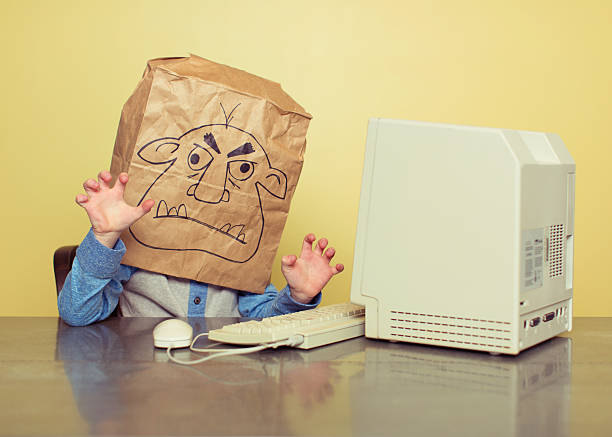
Don’t say anything online that you shouldn’t want plastered on a billboard with your face on it.
Brin Bury
Trial by Media is an expression used to define the impression of television and newspaper exposure on a person’s repute by creating the extensive insight of guilt irrespective of any judgement in a court of law.
Trial by media is nowhere lawful. There is no authorized system where the media is given the competence to try a case. This dialect is used for those prestigious cases wherein the reporters present a pre-decided depiction of a suspect and begin spreading abhorrence amongst the general civic which can eventually move the trial and the verdict. Thus, it’s called trial by media.
Social media has created jealous behaviour over illusions. Sadly, some are envious of things, relationships and lifestyles that don’t even exist. It gives us something which the real-world lacks; it gives us immediacy as an individual. Privacy is dead and social media holds a smoking gun nowadays. It is the ultimate equalizer. It gives a voice and a platform to anyone willing to engage for their lifetime.
What do we need to understand?
Media is the fourth pillar of democracy after legislature, Executive and Judiciary. It helps us in changing the perspective of society. Part iii of the Constitution of India does not particularly talk about Freedom of Press. But in a number of cases, the Supreme Court held that the Freedom of speech and expression enshrined in Article 19(1) of the Constitution includes freedom of the press.
What is Prejudice?
Prejudice is a pre-judgment without having adequate and ample knowledge of the subject matter. It’s a very enlightening fact that prejudice often relies on stereotypes. For instance, linking homemaking to a woman or associating pink colour with women. Prejudice is an attitude and a point of view that can lead a person to commit crimes and can trigger other abusive actions.
The Importance of Social Media
Social media and social networking seem to play an imperative part of people lives around the world. The contemporary world is overloaded with a lot of information. Its impact on humans is huge and can be either positive or negative. There are many informative online sites but each site has boon and bane.
The question which arises is that is it right to allow Social Media to reincarnate itself into a Court Room?

In the same way, it prejudices the public and sometimes even judges. As a result, the accused, that should be assumed innocent, is presumed as a criminal leaving all his/her rights and liberty un-redressed. The justice system, which we have been following, states that guilt must be proved and demonstrated beyond a reasonable doubt.
To further knowledge and understanding, the law is not governed by emotions. At the time of displaying the emotions, the masses forget that they are putting a good amount of pressure on the person who will be presiding over the cases.
Legal Overview
The problem of unencumbered use of this freedom becomes ostensible if we look at the meddling of media in the management of justice. This intrusion can be summed up in the expression trial by media which fundamentally means the effect that media has on a trial proceeding. This influence can be through prejudicing, establishing a perception or characterizing an individual in a certain way.
Given the large-scale use of social media, the whole pattern and the way of publication of news reports has changed and due to this, it can also have a prejudicial impact on the cases which can likely affect the suspects, accused, witnesses, and even the judges to an extent. In the past year, a law commission report even suggested and proposed a law to tackle trial by media. The trial which unprecedently goes over social media can be a contempt of court and even defamation in certain cases.
In 2015, Jasleen Kaur, a lady from Delhi, India, posted a photograph of a man, Sarvjeet Singh, on Facebook and alleged him of sexual harassment. The Facebook post went viral which was trialled by a media trial tagging the man with terms like ‘pervert’ and ‘the chaser of Delhi’. After four years, the man was held not guilty by the Delhi court and was cleared of all the charges. Nevertheless, during the time, the man had lost his everything including his job and couldn’t find any other source of income due to such broadcasting coverage.
Conclusion
The media is supposed to be a voice of people, it is not denied in any case. It plays an affirmative role whenever justice is denied. Today, media is so much sensationalised that it often exceeds its powers and assumes the role and function of the Court. Therefore, the media while acting as a watchdog must ensure the free and fair administration of justice. So that it is considered and proved as eyes and ears of the general public.
Submitted by Priya Sharma